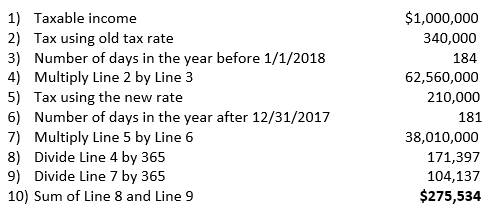IRS Notice 2018-122: Federal Deduction for State and Local Tax Payments
The new federal tax law limits an individual’s deduction for the amount of state and local taxes paid during the year to $10,000 ($5,000 in the case of married filing a separate return). This limitation applies to tax years 2018 through 2025.
In response to this new limitation, some state legislatures are considering or have adopted legislative proposals that would allow taxpayers to make transfers to funds controlled by state or local governments, or other transferees specified by the state, in exchange for credits against the state or local taxes that the taxpayer is required to pay. The aim of these proposal is to allow taxpayers to characterize such transfers as fully deductible charitable contributions for federal income tax purposes, while using the same transfers to satisfy state or local tax liabilities.
IRS stated in the Notice 2018-122 that it intends to issue regulations addressing the federal income tax treatment of transfers to funds controlled by state and local governments that the transfer can treat in whole or in part as satisfying state and local tax obligations. The regulations will make clear that the substance-over-form would dictate the proper characteristic of such payment for federal income tax purposes, thereby limiting taxpayers’ ability to recharacterize tax payments subject to deduction limitation to fully deductible charitable contributions.
Please refer to the link below for further detail:
https://www.irs.gov/pub/irs-drop/n-18-54.pdf


